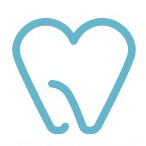Why do you need a dental cleaning?
人们吃各种食物时,就会在牙面上留下痕迹,这些痕迹单靠每天早晚刷牙是难以清楚干净的,何况有些人还没有良好的口腔卫生习惯,久而久之就形成了牙石、色素等顽固的牙垢。牙垢是引发牙周病的主要原因,牙周病引起牙龈发炎、出血和口腔异味,严重时使患者的牙齿松动、移位,甚至脱落,所谓"老掉牙"就是因牙周病引起的。
Overview of Ultrasonic Scaling
Gingival scaling (commonly known as teeth cleaning) refers to the removal of supragingival calculus, plaque, and stains with scaling instruments, as well as the polishing of tooth surfaces to delay the re-deposition of plaque and calculus. However, since supragingival calculus is often connected to subgingival calculus, professional teeth cleaning should also remove calculus inside the gingival sulcus, which is about 3mm below the gum line. For deeper subgingival calculus, subgingival curettage should be performed later.
Indications
Anyone with gingivitis and periodontitis needs teeth cleaning.
Contraindications:
Ultrasonic scaling is not recommended for patients with a pacemaker, blood diseases such as acute leukemia, aplastic anemia, acute hepatitis, or AIDS. It is also not recommended for patients with uncontrolled diabetes, hypertension, or acute periodontal abscess.
Frequently Asked Questions:
1. Why do we need dental cleaning?
Dental calculus and plaque attached to the calculus are important causes of periodontal disease. Dental calculus irritates the gums and, combined with bacterial toxins, causes inflammation of the periodontal tissues, resulting in redness, swelling, bleeding, and purulence of the gums, as well as resorption of the alveolar bone. Ultimately, it leads to loose or falling teeth.
2. Introduction to dental cleaning instruments:
Currently, ultrasonic treatment instruments are commonly used. They use the high-frequency vibration of ultrasound to remove dental calculus and plaque. They are efficient, high-quality, time-saving, and labor-saving. With proper operation, they cause minimal damage to the tooth surface. Dental cleaning is one of the fundamental treatments for periodontal disease. It removes pathogenic factors, reduces gum inflammation, and makes the teeth look beautiful and the oral cavity comfortable.
Post-cleaning precautions:
1. Generally, eating is not affected after teeth cleaning. However, due to the thin bone structure of the teeth, especially the dental bone at the neck of the teeth, some people may experience sensitivity symptoms after teeth cleaning, especially when there is heavy tartar and obvious periodontal inflammation. This secondary allergic pain is short-lived and disappears when the stimulus is removed. Generally, no special treatment is needed, and it gradually disappears in 1-2 weeks. For more severe cases, desensitization treatment can be performed.
2. After teeth cleaning, the main focus is on self-oral hygiene maintenance, such as using mouthwash, brushing teeth correctly, using dental floss, interdental brushes, etc., to control plaque formation.
Possible phenomena after teeth cleaning:
1. Teeth may be sensitive to cold and hot, but the symptoms will gradually decrease and disappear over time.
2. After teeth cleaning, the gums may bleed, especially for patients with gingival redness and swelling. The bleeding will generally stop within a short period of time. If there is prolonged bleeding, immediate follow-up examination is necessary.

